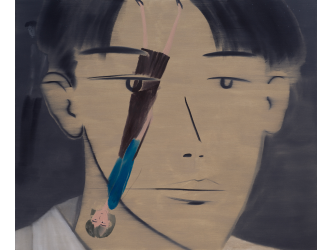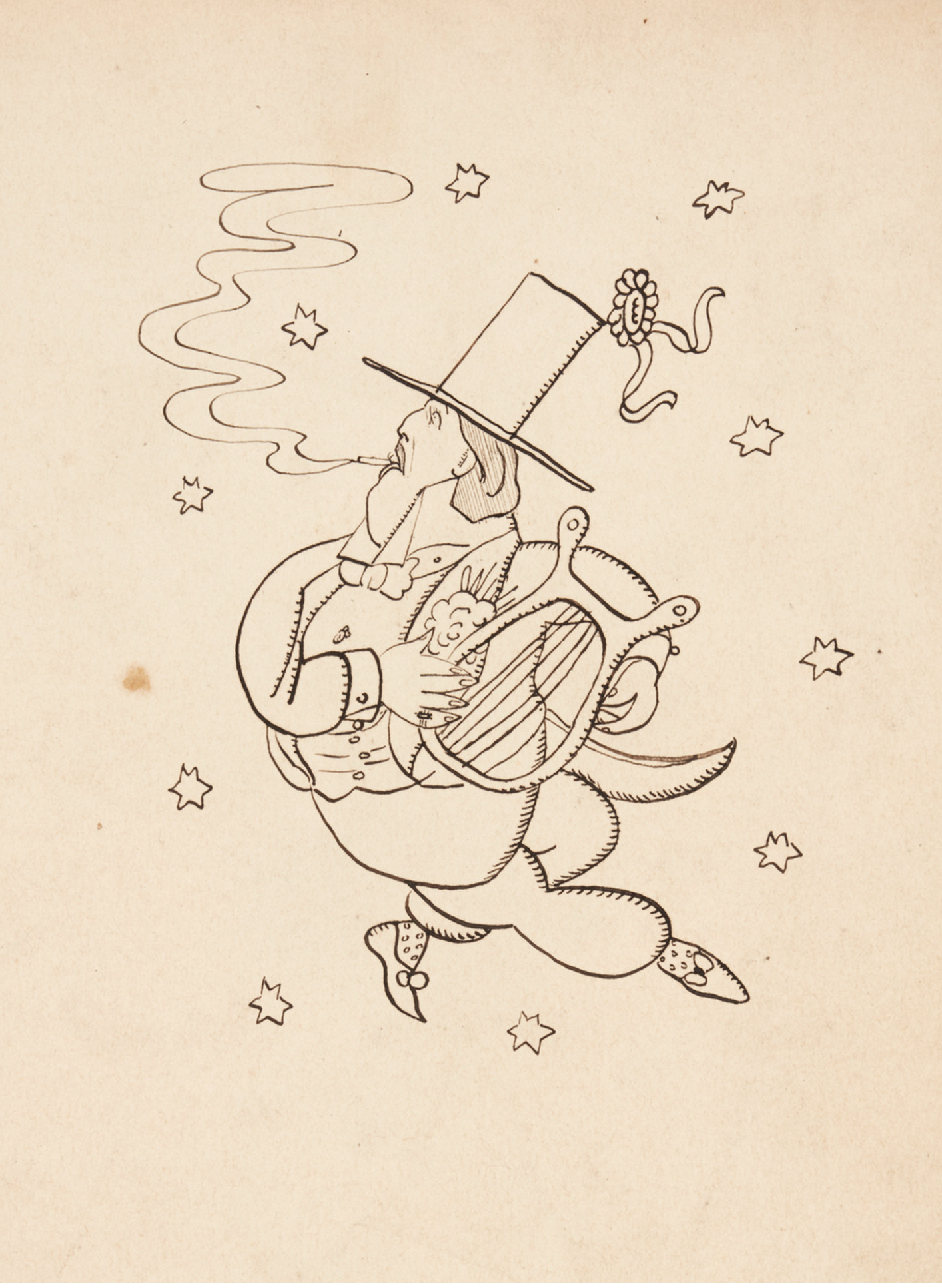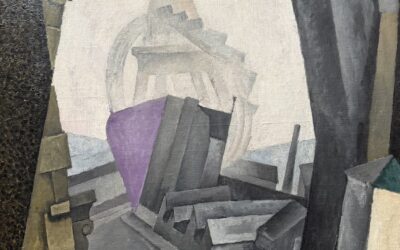François Pinault
Season after season in Paris — and in Venice at the Punta della Dogana and the Palazzo Grassi — the Pinault Collection’s program continues to reveal different facets of the vast ensemble amassed by the French businessman, François Pinault. So when the new exhibition at the Bourse de Commerce in Paris is titled “Minimal”, one should not expect only a deep dive into the major American movement of Minimal Art, which from the mid-1960s advocated a maximal reduction of forms and emotion-free creation. Against all expectations, the “Minimal” on view until January 19th defies art-historical definitions, gathering works by fifty artists from Japan to Brazil — most of them drawn from François Pinault’s collection.
My dream
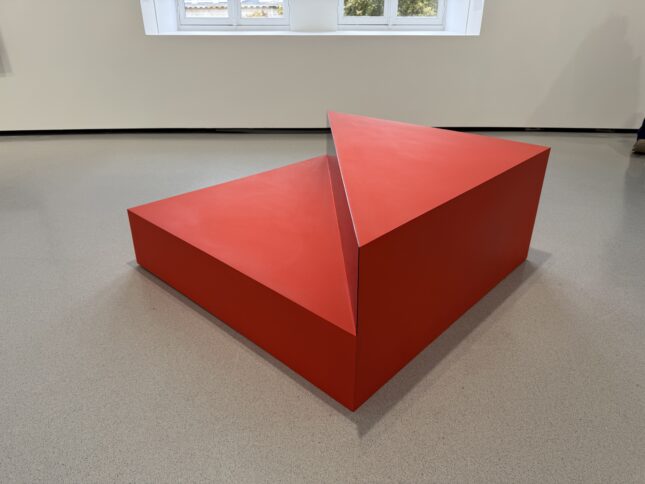
Donald Judd
I would have dreamed of seeing a large group of Minimal Art. This art that stuns by the stark power of its concept. The “pure”, the hard, the heavy, the cold, the monumental works of Carl Andre, Donald Judd, Robert Morris, and the like — the kind France hasn’t seen represented on a large scale, perhaps, since the Panza Collection exhibition at the Musée d’Art Moderne (1). That was back in 1990.
Jessica Morgan
Where the show becomes relevant, despite its potentially misleading title, is that it has been curated by Jessica Morgan, director of the Dia Art Foundation — the true temple of Minimal Art in the United States. She clearly knows her subject, and for Paris she has devised a harmonious hanging of artists — some historical, others seen as heirs to the minimalist spirit. Because in fact, the exhibition deals with the idea of a minimalist spirit, rather than with Minimal Art itself. “My goal,” she explains, “was to show the different voices that have been genuinely engaged in thinking about what a minimal form can be. These artists rarely aim to tell a story. Their works interact with their environment, without pedestal or frame. One must also take into account the exchanges that took place between American and Asian artists, and then between Asian and French artists, particularly between 1970 and 1971.”
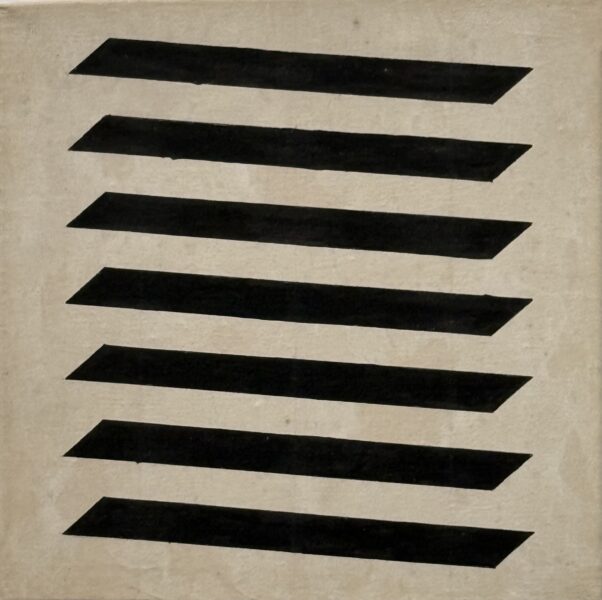
Agnes Martin
Meg Webster
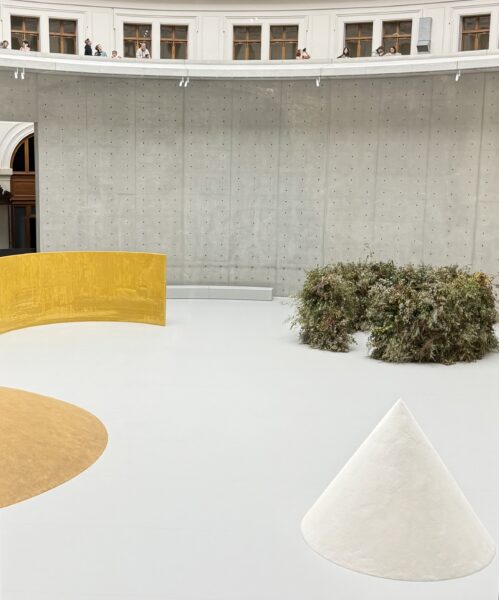
Meg Webster
In this spirit of freedom, the majestic rotunda of the Bourse de Commerce is occupied by the American artist Meg Webster (born 1944). “Her work is a fascinating continuation of geometric exploration, but always conceived in natural materials — earth, salt, beeswax, foliage…” Webster has drawn in three dimensions a schematic, colorful landscape composed of five monumental simple forms — dome, cylinders, concave wall — symbolizing ecological concerns.
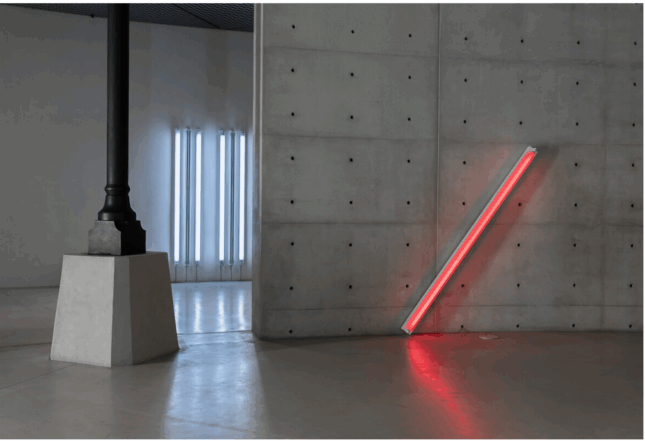
Dan Flavin
Flavin and Lewitt
It is in the basement, with four historical works by Dan Flavin, that one most strongly feels the original presence of the Minimal spirit. These colored neon assemblages, such as The Diagonal (1963) — a single industrial neon tube mounted diagonally, which he called a “diagonal of personal ecstasy” — mark the intellectual core of the exhibition. Several rooms are devoted to specific themes. The grid, for instance, appears throughout this time-and-space journey. The great minimalist and conceptual genius Sol LeWitt (1928–2007) – here represented only by one work- made it a recurring motif: the result of rational, repetitive instructions filling the paper with fine geometric lines. “The idea,” he said, “becomes a machine that makes the art.
Gunther Uecker and Lygia Pape
In 1968, the German artist Gunther Uecker (1930–2025), part of the Zero movement — which sought to start again from zero after the war — arranged nails on a monochrome surface to form a grid. One of the most beautiful spaces in the exhibition is devoted to a 2003 piece by Brazilian artist Lygia Pape (1927–2004), a member of the Neo-Concrete movement. Here she imagined immense golden metal threads stretched through the darkness, like the materialization of streams of light illuminating invisible stars — minimal for maximal effect.
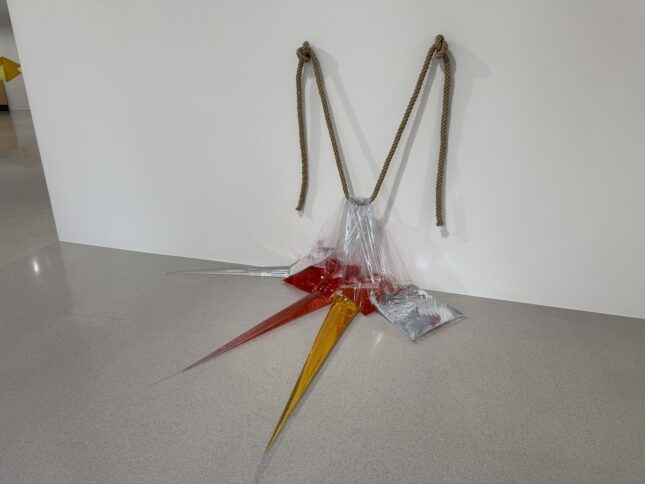
Senga Nengudi
Until January 19, 2026 — www.pinaultcollection.com/fr/boursedecommerce
(1) with the exception of certain pieces belonging to the permanent collections of the Saint-Étienne Museum and the Centre Pompidou.
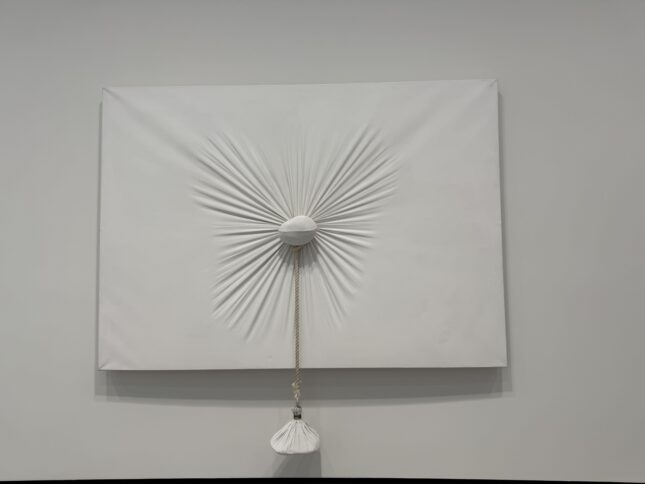
Nobuo Sekine
Support independent art journalist
If you value Judith Benhamou Reports, consider supporting our work. Your contribution keeps JB Reports independent and ad-free.
Choose a monthly or one-time donation — even a small amount makes a difference.
You can cancel a recurring donation at any time.


